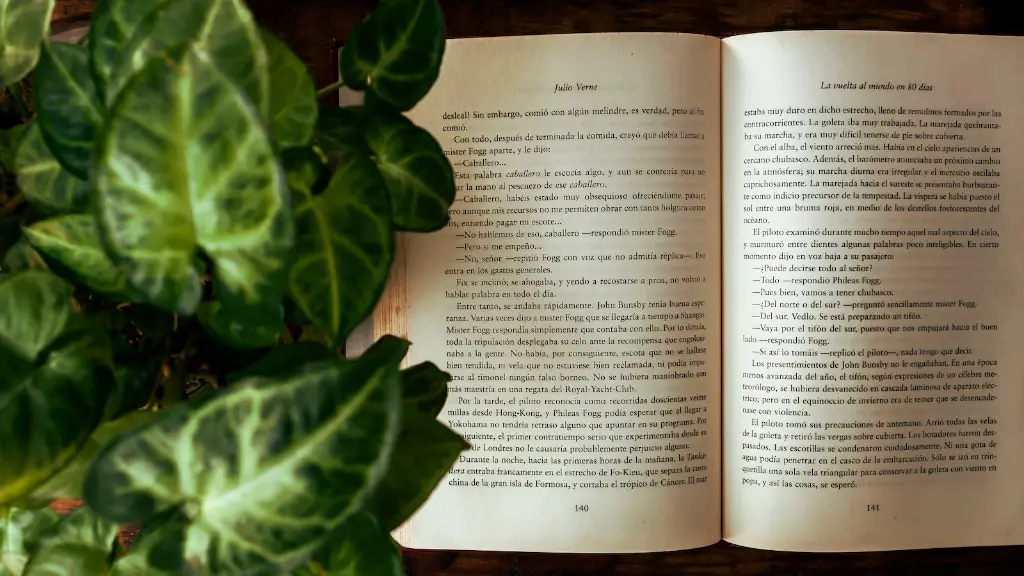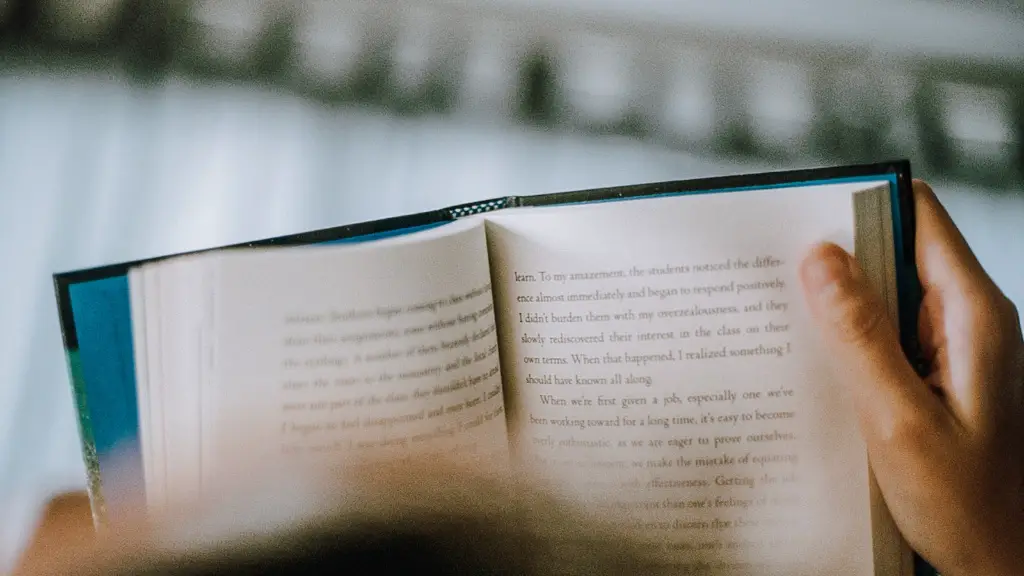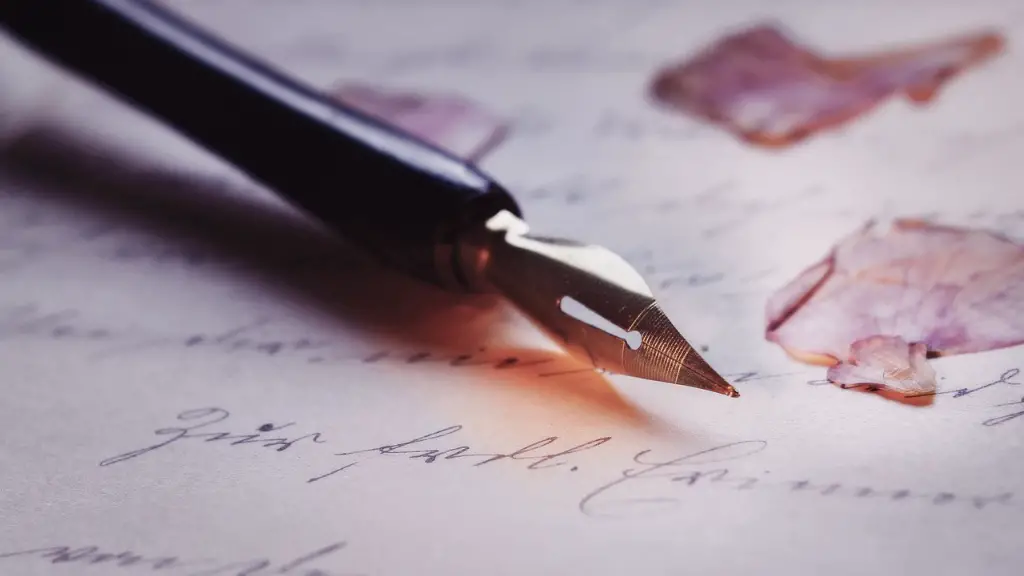Emily Dickinson was an American poet who wrote in the mid-19th century. She is considered one of the most important authors of poetry in the English language. Dickinson’s poetry often deals with themes of death and immortality.
In her later years, Emily Dickinson became increasingly reclusive, and her thoughts on poetry became more mystical. She believed that poetry was a way to access the divine, and she saw it as a form of prayer.
How would you describe Emily Dickinson’s poetry?
Emily Dickinson’s writing style is most certainly unique. She used extensive dashes, dots, and unconventional capitalization, in addition to vivid imagery and idiosyncratic vocabulary. Instead of using pentameter, she was more inclined to use trimester, tetrameter, and even dimeter at times. This made her writing style very difficult to imitate, and even more difficult to understand. However, this also made her one of the most original writers of her time.
Dickinson’s poetry was heavily influenced by the Metaphysical poets of seventeenth-century England, as well as her reading of the Book of Revelation and her upbringing in a Puritan New England town. These factors encouraged a Calvinist, orthodox, and conservative approach to Christianity, which is reflected in her poetry.
What is the focus of Emily Dickinson poetry
Dickinson’s seclusion was a key factor in her ability to develop her poetic voice. By isolating herself from the outside world, she was able to focus on the internal landscape of her emotions and experiences. This allowed her to explore the full range of human emotions, from the darkest depths of pain and loneliness to the heights of happiness and ecstasy. Death was a frequent topic in her poems, often personified as a male figure who represented the ultimate source of fear and pain. But she also wrote about religious and moral themes, as well as love and love lost. In doing so, she created a body of work that is both deeply personal and universally relatable.
Emily Dickinson is a unique poet who employs different tones in her poetry. She has poems about death and suffering which are quite pessimistic and depressing. However, she also has poems that are more light-hearted and optimistic. These poems read like tiny essays, and demonstrate Dickinson’s cognitive superiority.
What are 5 words that describe Emily Dickinson’s poetry?
Emily Dickinson’s poetry is characterized by unconventional themes, individualism, transcendentalism, spiritualism, realism and symbolism. Her poems often explore themes of death, love, nature and the individual’s place in the world. Dickinson’s individualistic style and use of symbols set her apart from other poets of her time. Transcendentalism and spirituality are also evident in her work, as she often sought to explore the mystical and spiritual side of life. Realism is another key element in her poetry, as she sought to capture the everyday experiences of life in her work.
One of Dickinson’s most intriguing qualities as a poet is her ability to describe abstract concepts using concrete images. In many of her poems, abstract ideas are enlivened and clarified by material things, but the connection between them remains complex and unpredictable. This technique allows Dickinson to explore the nuance and richness of human experience in a way that is both intellectually stimulating and emotionally moving.
What was Emily Dickinson’s inspiration?
There is no one-size-fits-all answer to this question, as the best way to learn anything is ultimately through trial and error. However, there are a few key things that everyone should keep in mind when learning anything new: focus, practice, and perseverance. By keeping these things in mind, you can increase your chances of success when learning anything new.
There is no denying that Dickinson was a master of her craft, and her unique perspective on common themes is one of the things that made her poetry so special. However, it is important to remember that she was not working in a vacuum – her contemporaries were also exploring these same topics, and she was undoubtedly influenced by their work. The way she approached these subjects was undoubtedly influenced by the other writers of her time, and her unique voice was the result of her own specific experiences and perspectives.
What poetic techniques did Emily Dickinson use
Dickinson uses a variety of poetic devices to create ambiguity in her poetry. Her use of imagery, enjambment, and dashes all contribute to this ambiguity. By using these devices, Dickinson is able to increase the uncertainty in her already ambiguous subjects.
Realism, on the other hand, was a response to the highly idealized view of the world that was characteristic of Romanticism. It sought to portray the world as it really is, without the embellishments of Romanticism.
Emily Dickinson’s poetry blends these two genres, painting detailed and realistic portraits of the world around her while also highlighting the beauty of the natural world and the importance of morality and ethics. In doing so, she creates a unique and powerful form of poetry that speaks to both the head and the heart.
What was strange about Emily Dickinson?
Emily Dickinson was considered strange by the residents of her hometown because she took to wearing white clothing much of the time, and also for her reclusive nature. She eventually refused to come downstairs to greet her guests and sometimes would only hold conversations through the closed door of her bedroom.
There is no one-size-fits-all answer to this question, as the best way to improve your writing skills depends on your individual needs and goals. However, some general tips to help you improve your writing skills include:
– Reading as much as possible in order to expand your vocabulary and grammar knowledge.
– Practicing writing in different styles, on a variety of topics.
– Seeking feedback from others on your writing, in order to identify areas that need improvement.
– paying attention to the writing of others, in order to learn from their techniques.
What can we learn from Emily Dickinson
Emily Dickinson was a prolific poet who challenged societal norms and encouraged people to think independently. Many of her poems touch on controversial topics like marriage, family, and religion. Through her poetry, Dickinson encouraged people to be open-minded and embrace their individualities. Her lessons continue to inspire people to this day.
Emily Dickinson’s poetry often features unconventional themes, varied moods, and brevity. Her poems are often untitled, reflecting her individualism, and often deal with transcendental themes. Dickinson is known for her unbiased opinions and her mystical, spiritual approach to life. Her poetry is often realism, but with a unique spin.
What did Emily Dickinson refuse to do?
Emily Dickinson was a feminist who believed that women should not have to do household chores that they saw as neverending and pointless. She enjoyed doing things that were traditionally considered “feminine” such as gardening, but she also believed that women should be free to pursue any interests they desired.
Hope is what keeps us going when things are tough. It’s that little voice inside us that tells us things will get better. Hope is what gives us the strength to keep going when we feel like we can’t. It’s what helps us get through the bad times. And it’s what helps us appreciate the good times even more.
Final Words
Emily Dickinson was a prolific poet who wrote about a wide range of topics, including nature, love, death, and religion. She is best known for her unique style, which often made use of dashes and unconventional capitalization. Dickinson believed that poetry should be expressive and accessible to as many people as possible. She once wrote, “If I read a book and it makes my whole body so cold no fire ever can warm me, I know that is poetry.”
Emily Dickinson once said, “Poetry is what gets lost in translation.” She believed that the true meaning of poetry is often lost when it is translated from one language to another. She also believed that poetry is like a mirror that reflects the soul of the poet.





